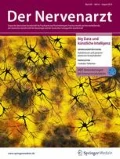Zusammenfassung
Wir untersuchten die Bedeutung von akuter Alkoholisierung zum Tatzeitpunkt (ICD-10: F10.0) und chronischer Abhängigkeitserkrankung (ICD-10: F10.2) für das delinquente Verhalten bei 254 begutachteten Straftätern. 64,6% der untersuchten Täter waren zum Tatzeitpunkt alkoholisiert, 25,6% waren alkoholabhängig. Alkoholisierung zum Tatzeitpunkt korrelierte mit der Begehung eines Gewaltdelikts, rücksichtsloser Ausführung der Tat sowie mit früheren Verurteilungen. Bei Kontrolle demographischer und psychosozialer Faktoren durch logistische Regression erwies sich akute Alkoholisierung, nicht aber Alkoholabhängigkeit, als signifikanter Prädiktor eines Gewaltdelikts (Odds Ratio 2,3; p=0,02). Sowohl akute Alkoholisierung als auch Alkoholabhängigkeit sagten unabhängig voneinander und hochsignifikant das Vorliegen von Vorstrafen voraus (Alkoholisierung: Odds Ratio 4,3; p=0,0001; Abhängigkeit: Odds Ratio 3,6; p=0,003). Unsere Befunde stützen die Hypothese, dass die akute Alkoholisierung zum Tatzeitpunkt einen direkten Einfluss auf die Gewaltsamkeit der begangenen Tat hat. Alkoholabhängigkeit hingegen erscheint mit der Chronifizierung kriminellen Verhaltens assoziiert zu sein.
Summary
To study the influence of alcohol and psychosocial variables on delinquent behavior, we coded data from the psychiatric evaluation of 254 defendants using a standardized score sheet, analyzing correlations between acute intoxication at the time of the crime (ICD 10: F10.0), diagnosis of alcohol dependency according to ICD 10 (F10.2), psychobiographical variables, criminal history, and parameters relating to the index offence. We found that 64.6% of all defendants studied were intoxicated when committing the crime and 25.6% suffered from alcohol dependency. Alcohol intoxication correlated to occurrence of violent crime, cruelty in committing the index offence, and earlier convictions. Logistic regression, with demographic and psychosocial variables entered as covariables, revealed acute alcohol intoxication but not alcohol dependency as a predictor of violent crime (odds ratio 2.3, P=0.02). Alcohol intoxication and dependency were also independent predictors of earlier convictions (intoxication, odds ratio 4.4, P=0.0001; dependency, odds ratio 3.6, P=0.003). Our findings support the hypothesis that acute alcohol intoxication, not dependency, influences violent crime in a direct manner. However, alcohol dependency predicts criminal recidivism.
Author information
Authors and Affiliations
Rights and permissions
About this article
Cite this article
Pillmann, F., Ullrich, S., Draba, S. et al. Akute Alkoholwirkung und chronische Alkoholabhängigkeit als Determinanten von Gewaltdelinquenz. Nervenarzt 71, 715–721 (2000). https://doi.org/10.1007/s001150050655
Issue Date:
DOI: https://doi.org/10.1007/s001150050655

